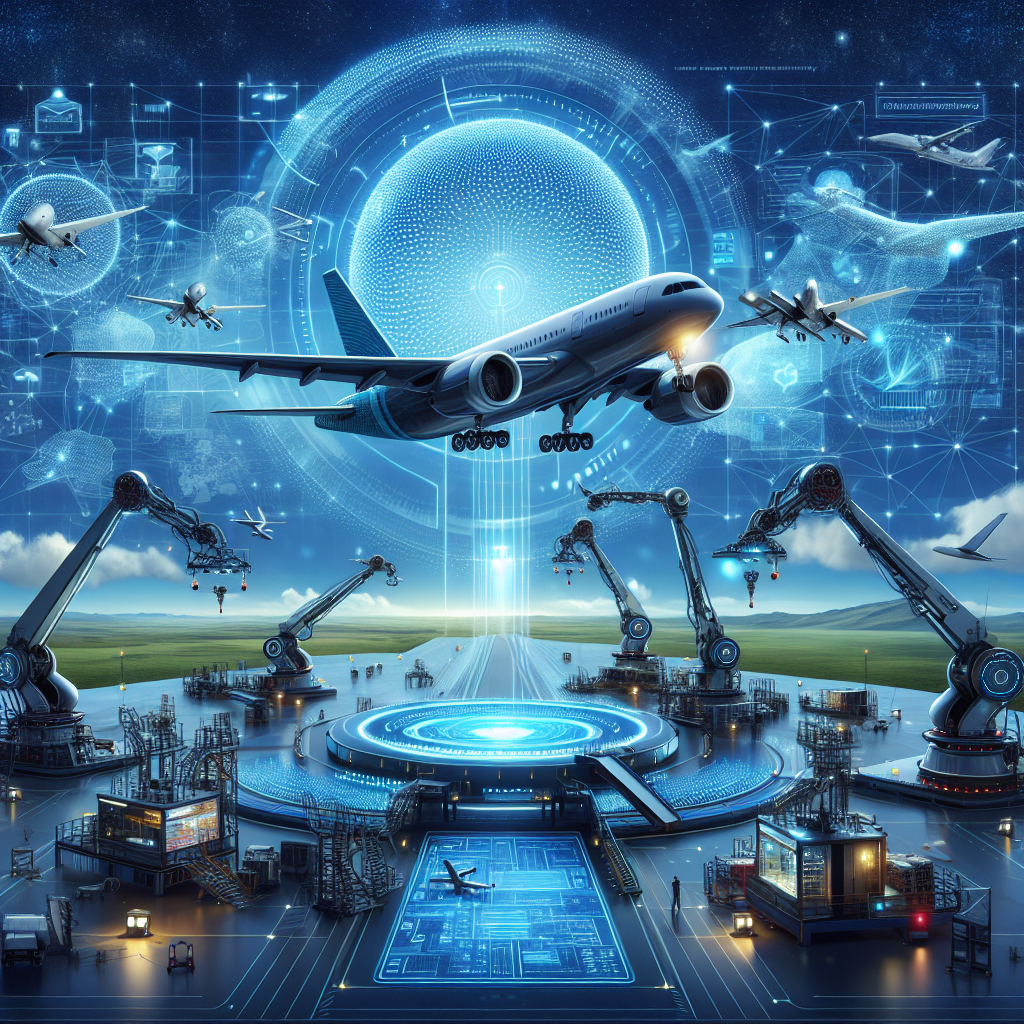
The Role of AI in Enhancing Predictive Maintenance for Aircraft
Introduction
The aviation industry is on the cusp of a revolutionary transformation, driven primarily by advancements in Artificial Intelligence (AI). One of the most promising applications of AI in this sector is predictive maintenance. By anticipating potential failures and optimizing maintenance schedules, AI systems significantly enhance aircraft efficiency, safety, and cost-effectiveness.
Understanding Predictive Maintenance
Predictive maintenance is a proactive approach that utilizes data analysis to predict when an aircraft component might fail, allowing maintenance to be scheduled just in time. This stands in sharp contrast to traditional reactive maintenance methods, which only address problems after they occur, often leading to costly repairs and downtime.
The Role of AI in Predictive Maintenance
AI algorithms analyze vast amounts of data generated by aircraft systems, which can include sensor data, operational logs, and historical maintenance records. Here are several ways AI is enhancing predictive maintenance in aviation:
- Data Analysis: AI systems assess historical and real-time data to identify patterns and anomalies that could indicate potential failures.
- Machine Learning Models: By employing machine learning, AI can continuously learn and improve its predictive accuracy over time, adapting to new data and evolving conditions.
- Fault Detection: Advanced algorithms can detect subtle signs of wear and tear or functional issues that may not be evident to human operators.
- Maintenance Scheduling: AI helps in optimizing maintenance schedules, ensuring that aircraft are serviced at the most opportune times without unnecessarily grounding them.
Benefits of AI-Driven Predictive Maintenance
The integration of AI in predictive maintenance offers numerous advantages, including:
Increased Safety
By predicting potential failures before they occur, AI enhances the overall safety of aircraft operations. Early detection of issues enables timely interventions, reducing the risk of in-flight malfunctions.
Cost Efficiency
AI-driven maintenance helps reduce unnecessary repairs and parts replacements. By only conducting maintenance when needed, airlines can significantly cut down on maintenance costs and prolonged downtimes.
Enhanced Reliability
Predictive maintenance ensures that aircraft are consistently in optimal operating condition, leading to increased reliability and fewer unexpected outages.
Extended Component Life
Regular and timely maintenance helps in prolonging the life of critical components, further contributing to cost savings and operational efficiency.
AI Technologies in Use
Several AI technologies are being leveraged in predictive maintenance:
- Neural Networks: Used for complex pattern recognition and fault prediction.
- Natural Language Processing (NLP): Helps in analyzing maintenance logs and extracting valuable insights.
- Computer Vision: Utilized for inspecting physical conditions of components through imaging systems.
- Internet of Things (IoT): Sensors and IoT devices generate real-time data that AI systems can analyze to predict maintenance needs.
Case Studies
General Electric (GE) Aviation
GE Aviation has developed an AI-based system known as “Digital Twin” technology. This system creates a virtual model of an aircraft engine and analyzes data to predict possible failures. As a result, airlines using this technology have seen a significant reduction in unexpected engine issues and maintenance costs.
Rolls-Royce
Rolls-Royce utilizes AI to monitor over 1,000 different engine parameters. Their AI-driven approach has led to improved accuracy in fault detection and reduced downtime, showcasing the benefits of predictive maintenance in real-world scenarios.
Future Prospects
The future of AI in predictive maintenance looks promising, with ongoing research and development expected to bring even more sophisticated solutions. Innovations in AI algorithms, data analytics, and sensor technologies will further refine predictive maintenance capabilities, making aircraft operations safer, more efficient, and economical.
Conclusion
AI is undeniably revolutionizing predictive maintenance in the aviation industry. By leveraging advanced data analytics, machine learning, and other AI technologies, airlines can achieve unprecedented levels of efficiency, safety, and cost-effectiveness. As the technology continues to evolve, the benefits of AI-driven predictive maintenance will only become more pronounced, marking a new era in aviation excellence.




Leave a Comment